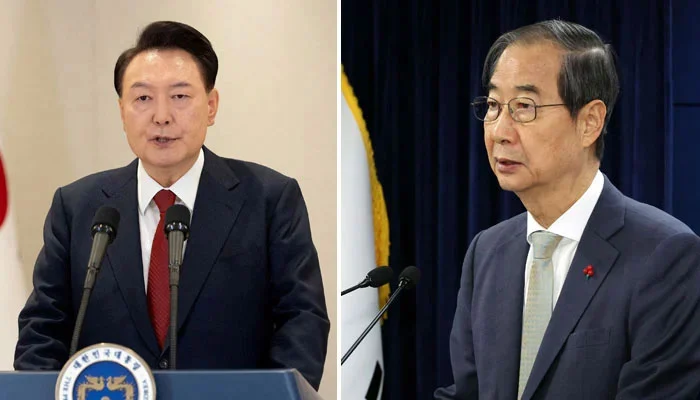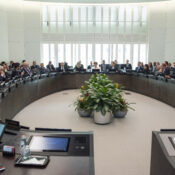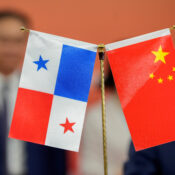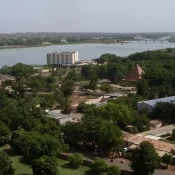
As Yoon is put on trial, South Korea’s interim president could be impeached
As the Constitutional Court convenes for its first hearing on suspended President Yoon Suk Yeol’s brief martial law imposed on December 3, a political crisis is exacerbated as the acting president of South Korea faces an impeachment vote on Friday.
Allies are watching with anxiety as the drive to remove Prime Minister Han Duck-soo, who has been serving as acting president since Yoon was removed from office on December 14, has put South Korea’s once-vibrant democratic success story into unfamiliar territory.
Lee Jae-myung, the leader of the opposition, accused Han of “acting for insurrection” and declared that his Democratic Party, which controls the majority of parliament, would carry out the plan to remove the interim president.
Lee stated in a vehement address that “the only way to normalize the country is to swiftly root out all the insurrection forces,” adding that the party was carrying out the public command to eliminate those who had endangered the nation.
After his attempt at martial law, opinion polls showed that the public was overwhelmingly in favor of Yoon’s ouster.
After Han refused to promptly designate three judges to replace vacancies at the Constitutional Court, claiming that doing so would go beyond his acting duty, the main opposition Democratic Party announced plans Thursday to hold a vote to impeach Han.
The number of votes required to remove Han as acting leader was still unknown. A two-thirds majority is required for a president, whereas a simple majority is required for a prime minister. Furthermore, it’s questionable if Han and the ruling party would accept any result.
Finance Minister Choi Sang-mok will legally take over as acting president in the event that Han is suspended.
Choi asked political parties to rescind the plan and cautioned that impeaching the acting president would gravely harm the nation’s economic reputation. Lee then promised to dismiss Han.
“The economy and the people’s livelihoods are walking on thin ice under a national state of emergency, and it cannot cope any greater political uncertainty that will result from another acting president assuming the acting presidency,” he stated.
Choi, accompanied by ministers, spoke on behalf of the nation’s government.
The South Korean won fell to its lowest level since March 2009 early on Friday, according to analysts, who said there was little that could be done to change the unfavorable feeling brought on by the political unpredictability.
The vote to decide Han’s fate coincides with the Constitutional Court’s first hearing on Friday, when it will consider whether to remove Yoon from office permanently or reinstate him following parliament’s vote to impeach him. It must make a decision within 180 days.
A lawyer for Yoon said his attorneys will be present at Friday’s session, following weeks of disobedience in which he disregarded the court’s requests for papers and investigators’ summonses in a different criminal case regarding his declaration of martial law.
Yoon’s advisor, attorney Seok Dong-hyeon, selected two attorneys for Yoon’s legal team: a former prosecutor and a former Constitutional Court spokesperson.
Attendance at the hearing is not mandatory for Yoon. A new presidential election would be held within 60 days if he were removed from office.
DECADES’ WORST POLITICAL CRISIS
Since 1987, when massive protests compelled the ruling party of former military generals to accept a constitutional amendment introducing direct, popular vote to elect the president, the country has been in its worst political crisis since the events that followed the declaration of martial law on December 3.
The financial markets have also been affected by the unrest. Yoon’s late-night declaration on December 3 that martial law will be imposed in order to break political impasse and drive out “anti-state forces” startled the nation and the world.
Special forces were sent by the military to the electoral commission, the national assembly, and the office of a liberal YouTube commentator.
It also called for government control of the media and issued directives prohibiting political parties and the parliament from engaging in certain activities.
However, within hours, 190 MPs voted against Yoon’s directive, defying the police and military cordons. Yoon revoked his initial decree almost six hours later.
Criminal investigations for insurrection are also underway against Yoon and top officials in his administration.
All Categories
Recent Posts
Tags
+13162306000
zoneyetu@yahoo.com



